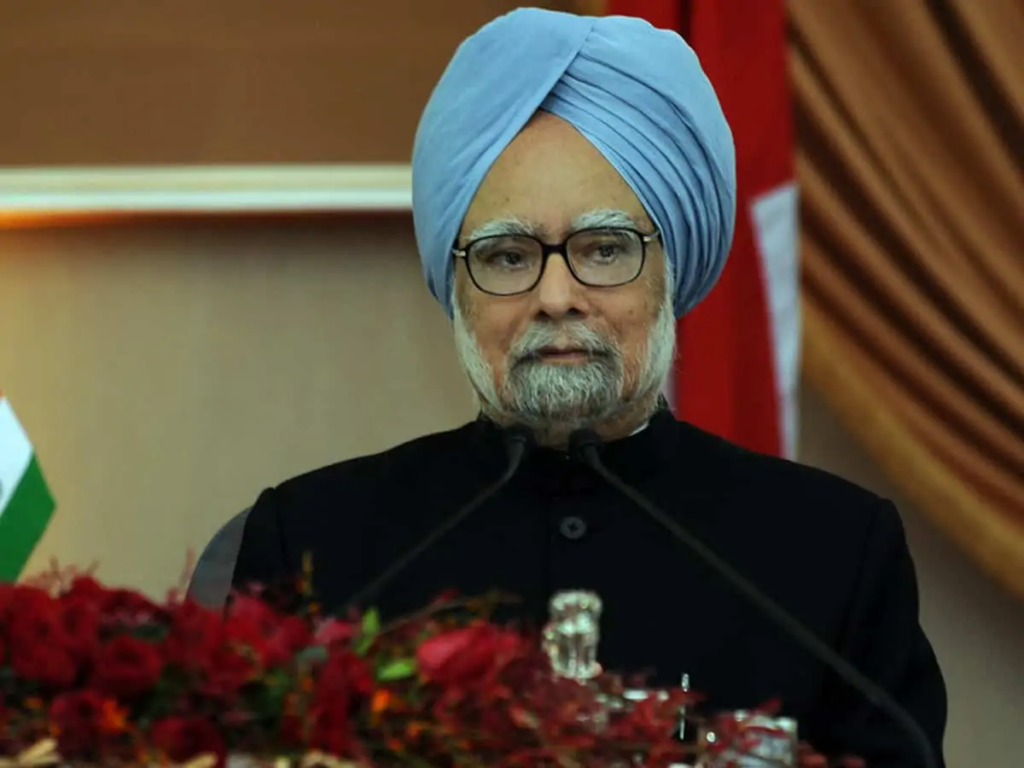Dr. Manmohan Singh is a distinguished Indian economist, academic, and politician who served as the 13th Prime Minister of India from 2004 to 2014. He is widely regarded for his pivotal role in shaping India’s economic policies and reforms. Below is an overview of his life, contributions, and awards:
Personal Background
- Born: September 26, 1932, in Gah, Punjab (now in Pakistan).
- Education:
- Bachelor’s and Master’s degrees in Economics from Panjab University.
- Honours in Economics from the University of Cambridge (St. John’s College).
- DPhil in Economics from the University of Oxford (Nuffield College).
Key Contributions
Economic Reforms of 1991
As the Finance Minister under Prime Minister P.V. Narasimha Rao, Dr. Singh spearheaded India’s landmark economic reforms in 1991, which transformed the country’s economy. Key highlights include:
- Liberalization: Opened up the Indian economy to foreign investments and trade.
- Privatization: Reduced the role of public-sector enterprises in the economy.
- Globalization: Integrated the Indian economy with the global market.
- Structural Reforms: Introduced measures to control fiscal deficits, boost exports, and encourage private enterprise.
These reforms are credited with averting a balance-of-payments crisis and setting India on a path of sustained economic growth.
As Prime Minister (2004–2014)
- Economic Growth: India witnessed high economic growth rates during his tenure, particularly in the early years.
- National Rural Employment Guarantee Act (NREGA): Launched this flagship program to provide rural employment.
- Right to Information Act (RTI): Ensured transparency and accountability in governance.
- India-US Nuclear Deal (2008): Fostered a strategic partnership with the US and enabled civilian nuclear cooperation.
- Social Welfare Schemes: Expanded initiatives like education and healthcare for the underprivileged.
Academic and Bureaucratic Contributions
- Held prominent positions, such as the Chief Economic Advisor (1972–76), Governor of the Reserve Bank of India (1982–85), and Deputy Chairman of the Planning Commission.
- Contributed to the academic study of trade, growth, and planning as an economist.
Awards and Honors
- Padma Vibhushan (1987): India’s second-highest civilian award, for his outstanding service to the nation.
- Indira Gandhi Prize for Peace, Disarmament, and Development (2017): For his efforts in achieving India’s socio-economic transformation.
- Numerous honorary degrees from prestigious universities worldwide, including Oxford and Cambridge.
- Named “Finance Minister of the Year” in 1993 by Euromoney and Asiamoney.
- Recognized globally for his leadership and economic acumen.
Legacy
Dr. Manmohan Singh is admired for his integrity, intellect, and soft-spoken demeanor. Despite criticism for policy decisions and leadership style during his tenure, his contributions to India’s economic resurgence and global positioning remain monumental.
Would you like details about any specific event or aspect of his career?














